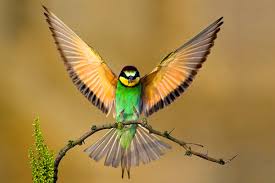
Planning time! Here is a peek into what we are planning in the 'nature' componant for February, March, April and May this year.
I like to start planning by keeping in mind the "Big Idea" or the "why" of why we are studying this topic. This keeps our planning on track and helps cull out "busy work".
It is the aim of the Our Family Homeschool that each child will be given every opportunity to:
o Develop a curiosity about and appreciation for the natural world
o Confidently use scientific method and a variety of research methods to learn about the natural world
o Record their learning and reflections about the natural world
o Communicate effectively about the natural world with other people
o Explore many different aspects of the natural world both directly (direct observation and experimentation) and indirectly (research, reading, viewing a variety of media)
o Pursue personal interests in this area.
Now to the nitty-gritty, where the rubber hits the road type planning. This Summer and Autumn, as well as our general observations of the natural world, the children will be given opportunity to learn about birds.
We will use a variety of resources including the following core texts:
Exploring Creation with Zoology 1: Flying Creatures of the Fifth Day Young Explorer Series by J. K. Fulbright
Handbook of Nature Study by Anna Comstock
As well as these core texts, we will select some of the following texts (sourced from our local library and our own bookshelves) to complement our learning:
• Owl Moon by Jane Yolen
• Stella Luna by Janell Cannon
• Song of the Swallows by Leo Polloti
• Owl Babies by Martin Waddell
• Make Way for Ducklings by Robert McCloskey
• The Nightingale by Hans Christian Andersen
• Blue wren by Belinda Brooker
• Good-night, owl! by Pat Hutchins
• The bag of wind by Gerald Rose
• The story of karrawingi the emu by Leslie Rees
• The imaginary menagerie by Hazel Edwards
• Little falcon by Jutta Goetze; illustrated by Marg Towt
• The best beak in Boonaroo Bay by Narelle Oliver
• Pelican by Pauline Reilly; illustrated by Will Rolland
• The pinkish, purplish, bluish egg by Bill Peet
• Edward the emu by Sheena Knowles; illustrated by Rod Clement
• Waddle giggle gargle! by Pamela Allen
• Birds, beasts, flowers: Australian children's poetry by William Hart-Smith; edited by Brian Dibble
• The Egg by Gallimord Jeunesse
• Chick Egg Guidebook by G.Q.F. Manufacturing Co
• Chickens Aren't The Only Ones by Ruth Heller
• Big Egg by Molly Coxe
• Egg to Chick by Millicent E Selsam
• Who's Hatching (Scholastic Inc.)
• Bird behaviour by Louise Dawson and Mike Langman; introduction by Bill Oddie
• Birds by Paul McEvoy
• Australian backyard wildlife by Jim Grant and Bob Winters
• I wonder why vultures are bald, and other questions about birds by Amanda O'Neill
• Birds by Stephen Savage
• Whose chick is that? by Jill B. Bruce; illustrated by Jan Wade
• Australian bush birds by Harry Frauca
• The Puffin book of Australian birds by Helen Hunt
• Birds by Joy Richardson
• Gollancz children's encyclopedia of birds by Jinny Johnson
• Birds by Diane James & Sara Lynn; illustrated by Sue Cony
• 100 things you should know about birds by Jinny Johnson; consultant, Steve Parker
• Famous Australian birds by Gisela Kaplan
• Amazing Australian birds by Barry Silkstone
• Feathers by Cassie Mayer
• Australian owls, frogmouths & nightjars by Jill Morris, Lynne Tracey
• Bird by David Burnie
• Eggs and chicks by Fiona Patchett
• Penguins by Bobbie Kalman
• How birds live by Barry Silkstone
• What is a bird? by Barry Silkstone
• Where birds live by Barry Silkstone
• Field guide to Tasmanian birds by Dave Watts
• Birds by Kylie Currey
• Birds by Peter Holden
• The Gould League book of Australian birds by Don Goodsir
• How nature works: fascinating projects and experiments that reveal the secrets of nature by David Burnie
You may have noticed that there is a mix of fictional and non-ficton books in that list. You would be amazed the insight you can gather from a good work of fiction! Many picture books also contain amazing illustrations which are just too good to miss. Field guides are also a must. We have several sitting on the shelf by the dining room window so we can use them to identify birds we see out the window while we eat dinner.
We will also directly observe domestic and wild birds in a variety of settings. This little sentence is what will bring the whole thing to life! Peering through binoculars out the window into the back yard, patting a chook, holding a baby duckling, collecting the eggs with Nanny, taking a trip to the wetlands centre to spot birds and chat to the park rangers. This is what lights the fire within!
Of course, we will also incorporate a few web and TV resources.
Bill Nye the Science Guy does a great program on
birds.
Enchanted Learning have some great
Bird resources
and
print outs. I've even gleaned a bit from the lapbooks on
homeschoolshare.comI'd love to hear about any other bird study ideas you have! Feel free to comment or leave a link.








